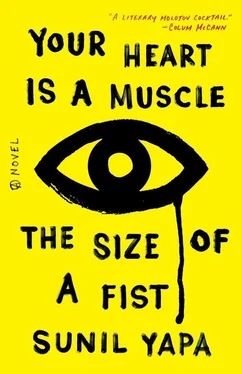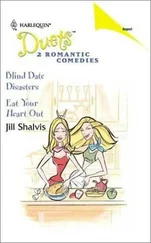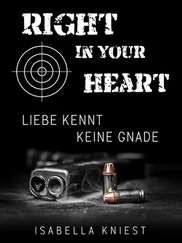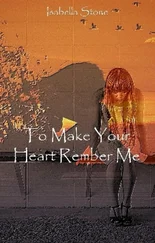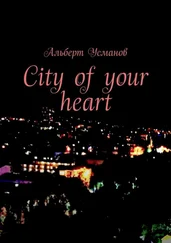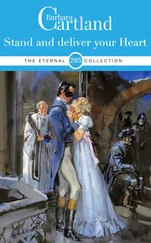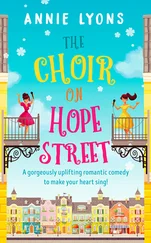For five hours now they had been going at it. They hit people in the face. They smashed hands and wrists, left purple-yellow bruises on shoulders and ribs and backs like odd constellations of pain to be examined by worried friends in the days to come. This was how badly the cops wanted to clear the streets and take their city back.
They tore away bandannas and gas masks, sprayed pepper spray into people’s naked mouths. Unarmed peaceful protesters chanting in the street — the police dragged them away by their hair. Five hours of physical misery in all its varied forms, a torturing so intense the hours seemed like days. They were hungry and soaking and cold down to their bones. The gas was sticking to their clothes and skin. Everything burned.
For five hours now they had been assaulted by tear gas, been hit by pepper spray and clubs, and still they remained.
And still they would not leave.
They would not stop until they had accomplished what their hearts had demanded they do and John Henry knew they were going to win no matter what it took.
They had stayed and controlled the intersection. Despite the police’s best efforts, no more than a handful of delegates had made it to the convention center. The opening ceremonies had been canceled. The news passed from mouth to mouth, but he didn’t need the human chain to know. No, John Henry could tell from the tilt of the cop’s heads as they paraded back and forth, the way they huddled in small groups hurriedly talking, the way they strode through the crowd, the anger with which they struck. Every gesture and motion signaled their desperation and frustration. They had never encountered it before, either in the streets or in their dreams of the street: people that would not submit. People unafraid of their violence. Brave people who would not leave.
John Henry was speechless with glad-hearted joy. They had stayed. They had stayed and they were winning. He felt his heart swell with pride as he said, “Victor, how you doing, son?”
No reply from Victor. Pure human pride in the flock and nobody more deserving than Victor. Nobody for whom John Henry felt more pride and admiration than Victor. Look at him there. His hair which had been in two tight braids was now frayed and loose. His back rigid. It was as though he was absorbing the horrors of the day through the medium of his seated body. Flaked white spit had gathered at the edges of Victor’s mouth. And his eyes, man. John Henry saw something building in the kid’s eyes and he could not have been prouder of this young man right here than if he were the boy’s own father. He hadn’t been trained a lick, had entered through no gate save his courage. Knew not the power of sitting. Knew not how the rage which became a sorrow can become a kind of joy.
John Henry said, “How you doing, son?”
Victor didn’t respond.
“Victor?”
And John Henry couldn’t have been prouder of him than if he was his own son, but had the boy’s fear turned to anger? Was he strong enough to allow the anger to become a sorrow which had the power to transform? Could he open himself to it — the suffering which redeemed?
King materialized out of the fog. To John Henry, she was radiant. The events of the day seemed to have spun her quick through her many selves until they had become fused and polished and whole. Her hair was atop her head and knotted. She shook it loose as she peeled off her gas mask. Her brown dreadlocks, her green eyes bright. Blood streaked her simple shirt, splattered against the white. She was alive and frantic and tired and talking, her hands everywhere on him, checking was he good, was he hurt, and the tiredness was in her eyes and the life was in her face and the frantic was in her voice and John Henry thought he had never seen a woman more beautiful than at this very moment. She knelt before him and touched his face.
“King,” he said, “where have you been?”
She touched his shoulders. His chest. His sides. Back to his face. Squeezed both his shoulders, ran her hand along his face, adjusted his glasses on his nose.
“John Henry, please. We need to go.”
John Henry saying, “We’re not going anywhere. We’re winning.”
King speaking so quiet John Henry could barely hear her. “Do you really believe that? That we’re winning?”
“King,” he said, “we are talking here of the human reservoir that has struggled for five hundred years to achieve the impossible. The rights of all people to live in simple dignity, neither oppressed nor anesthetized. What are our personal concerns compared to this? We’re not going anywhere.”
“Did you see what happened to Edie?” she said.
He nodded.
“They’re targeting medics,” she said.
He nodded again and she gathered her hands between her knees as if she didn’t know quite where to put them.
“John Henry, I can’t get arrested.”
She sounded panicky, voice trembling, completely unlike herself. King was one of the most levelheaded women he had ever met — she played fast and loose with plans, sure, subverted their process sometimes, but she was brilliant and brave. She had a quick temper, sure, and he had been burned more than once in the five years he had known her, but in the chaos of a street battle she was stone-cold ice. This was a woman he would trust with his life.
“Tell me why.”
She just shook her head. “I can’t.”
“King, are we talking about Vail? Again?”
She said nothing and John Henry imagined he could see into her lovely bile-filled interiors, her internal spaces, the places where she went alone to dream. John Henry saw it as an abandoned church — a cathedral, really, graffitied and high broken windows with pigeons sliding in and out, pigeons cooing in the archways, pigeons moving through shafts of light and shadow in the vestibule, a loose-timbered space, high-vaulted and desolate, and King lying on the floor passed out. King lying on the floor in John Henry’s ruined church, head resting on his piled books, staring into the high dusty air, looking into the unreachable depths eighty feet up. There she was lonely and discontented and gazing. Content, perhaps, in the upper distances with the words rolling through her mind. Lying there, passed out drunk and waiting for what exactly to come flapping through her life?
“No, John Henry,” she said, so quietly he could barely hear her, “we are not talking about Vail.”
“What then? Tell me.”
“John Henry.” So quietly was he sure she was even speaking? “I shouldn’t be here, John Henry.” She was almost crying. Her green eyes filling with fear. “I can’t get arrested, John Henry. I’m sorry. I’m so sorry. But I can’t get arrested.”
She was shaking. The calmest woman he knew, yes, but one who had a temper like a tornado. And now she was near panic. He had never seen her like this. What had changed? What had happened? He wanted to ask and then stopped. Stopped and stopped and stopped.
If she couldn’t get arrested, she really meant it. Fuck, he knew that much. He didn’t argue much with King when she got going, and if she couldn’t get arrested, John Henry didn’t want to think about what that might mean.
What else she might have done.
“John Henry, please trust me.”
He nodded, thinking he really did not want to know.
“I’m staying,” he said.
The way King was kneeling and looking at John Henry, Victor felt a certain pause in his life. A moment which opened and seemed large enough between heartbeats to contain every moment in his life up until that moment and Victor had what could only be called an insight. One of those sudden flashes of knowledge about a person that arrives wholly formed and is so surprising, whimming up from what unconscious antennae, that you know without asking that it must be true.
Читать дальше
